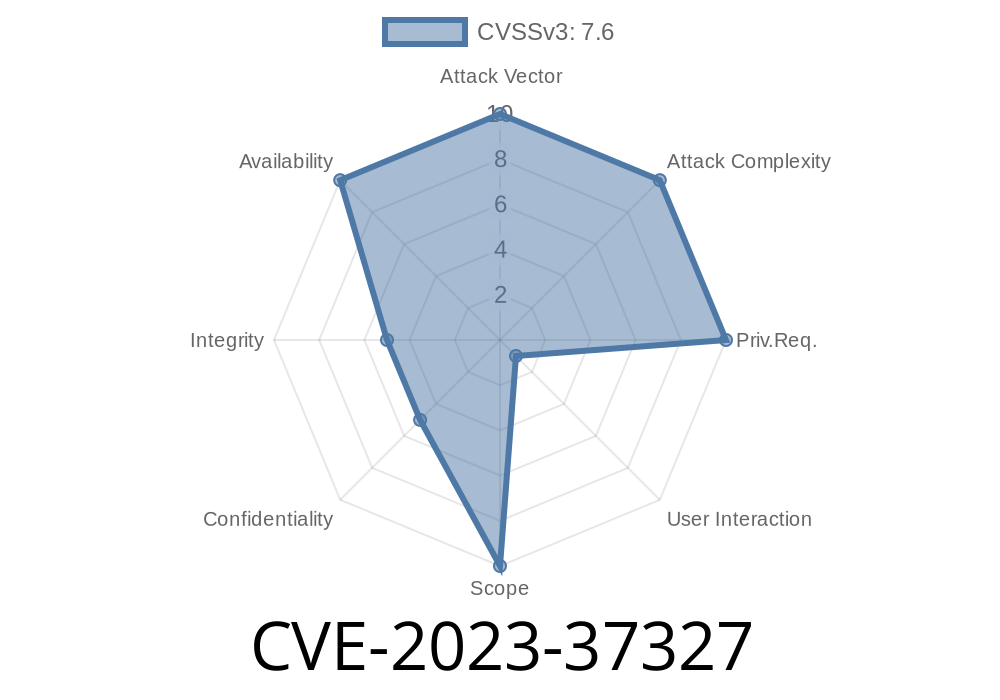A major security bug tracked as CVE-2023-37327 was discovered in the popular multimedia framework GStreamer, affecting the way it handles FLAC audio files. This flaw, also known as ZDI-CAN-20775, can let remote attackers execute arbitrary code on any system using a vulnerable version of the library. Let's break down how this vulnerability works, how it can be abused, and what you can do about it.
What is GStreamer?
GStreamer is an open source multimedia framework used by many operating systems (like Linux distributions) and applications for handling audio and video coding. If you play music in Linux or watch a video on some desktop apps, there's a good chance GStreamer is responsible.
One of the audio formats GStreamer supports is FLAC, a lossless music compression format.
The Vulnerability: Integer Overflow While Parsing FLAC Files
The root of the problem is in the parsing logic for FLAC files. Certain metadata fields in a FLAC file are read and interpreted by GStreamer's parsing code. However, some of these fields are not properly validated. This means that if an attacker creates a specially crafted FLAC file with weird or malicious values, the parsing code can get confused—sometimes resulting in an integer overflow.
What’s an Integer Overflow?
Imagine a number that's too big to fit. If you tell a computer to add two big numbers and store them in a small bucket (like a 32-bit integer), it’ll “overflow” and wrap around, giving a totally unexpected result. This is a classic trick attackers use to confuse buffer allocation logic.
Where Does This Happen in GStreamer?
GStreamer’s FLAC plugin doesn't always check if the values it's reading make sense, or if they’ll fit in memory as requested.
For example, when parsing a FLAC STREAMINFO metadata block, the code reads min_blocksize and max_blocksize, and then calculates a size to allocate for internal buffers. If an attacker sets these fields to huge numbers, an integer overflow can happen, so a too-small buffer might be allocated.
Consider this simplified pseudo-code, inspired by GStreamer's FLAC parser
// Example: Vulnerable code in FLAC parser
uint16_t min_blocksize = read_uint16_from_file();
uint16_t max_blocksize = read_uint16_from_file();
// Vulnerable buffer allocation
uint32_t blocksize = max_blocksize * sizeof(int16_t); // attacker controls max_blocksize
int16_t* buffer = (int16_t*)malloc(blocksize);
if (buffer == NULL) {
// Handle error
}
Problem: If max_blocksize is set by the attacker to a huge value (like xFFFF), blocksize can wrap around due to integer overflow. This will allocate a tiny buffer—even though the code later treats it as much bigger.
Next, when the code tries to read into this buffer, it will begin to overwrite adjacent parts of memory—potentially leading to code execution.
They can craft a malicious FLAC file with special values.
- The victim opens or streams this file with a GStreamer-based app (like a music player or web browser).
The vulnerable code overflows buffers and overwrites important machine memory.
- With some skill, attackers can execute their own machine code—taking control of the system as the user/client.
Note: Remote exploitation may depend on which app is using GStreamer and how much control the attacker has over input files. For example, a music app that automatically fetches and plays music files could be an easier target.
## Proof of Concept (PoC) / Exploit Details
Here’s a minimalist example that demonstrates the integer overflow condition in a FLAC file. (This is for educational purposes only!)
Crafted FLAC header (hex):
66 4C 61 43 00 00 22 00 FF FF // 'fLaC' signature + FLAC STREAMINFO header w/ huge max_blocksize
Parsing triggers vulnerability:
When this FLAC header is read, the max_blocksize field is xFFFF, causing the parser's allocation to overflow:
// Allocates buffer way smaller than expected (integer overflow!)
// ...which will let us overwrite memory if the FLAC chunk is big enough
Potential Exploitation:
- With careful buffer layout, attackers can overwrite the return address of a function or key function pointers, achieving code execution as the current user.
Links to Official References
- Mitre CVE Page for CVE-2023-37327
- GStreamer FLAC Plugin Source
- ZDI Advisory ZDI-CAN-20775
- FLAC Format Documentation
If you use GStreamer or have apps that depend on it (especially on Linux)
- Upgrade GStreamer! The bug is fixed in later releases. Always keep your distributions and apps up-to-date.
Conclusion
CVE-2023-37327 is a classic example of how forgetting to check user data can turn into a serious bug. Any software handling “complex” formats like audio, video, or image files should be extra careful with parsing code. For end users—update your system and be careful what you open. For developers—never trust input, no matter how boring the file format might seem.
For further details, check the official GStreamer advisories, and keep your media software patched!
Timeline
Published on: 05/03/2024 02:15:43 UTC
Last modified on: 06/05/2024 18:30:39 UTC
